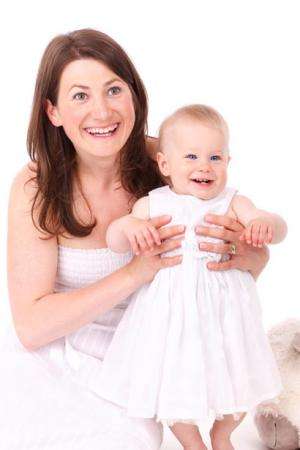Higher rates of post-natal depression among autistic mothers

Autistic mothers are more likely to report post-natal depression compared to non-autistic mothers, according to a new study of mothers of autistic children carried out by researchers at the University of Cambridge. A better understanding of the experiences of autistic mothers during pregnancy and the post-natal period is critical to improving wellbeing. The results are published in Molecular Autism.
The team recruited an advisory panel of autistic mothers with whom they co-developed an anonymous, online survey. After matching, this was completed by 355 autistic and 132 non-autistic mothers, each of whom had at least one autistic child.
Sixty percent of autistic mothers in the study reported they had experienced post-natal depression. By comparison, only 12% of women in the general population experience post-natal depression. In addition, autistic mothers had more difficulties in multi-tasking, coping with domestic responsibilities, and creating social opportunities for their child.
The study also found that when autistic mothers disclosed their autism diagnosis to a professional, they were not believed the majority of the time. Autistic women felt misunderstood by professionals more frequently during pre- and post-natal appointments and found motherhood an isolating experience. Despite these challenges, autistic mothers reported they were able to act in the best interest of their child, putting their child's needs first and seeking opportunities to boost their child's self-confidence.
Dr. Alexa Pohl, who led the study, said: "Autistic mothers face unique challenges during the perinatal period and parenthood. Despite these challenges, an overwhelming majority of autistic mothers reported that parenting overall was a rewarding experience. This research highlights the need for increased awareness of the experiences of motherhood for autistic women and the need for more tailored support."
Professor Simon Baron-Cohen, Director of the Autism Research Centre at Cambridge, and part of the team, said: "This worryingly high number of autistic mothers who experience post-natal depression means we are failing them and their infants at a critical point in their lives. We now need more research into why the rates are so much higher, whether they are seeking help and not getting it, or if they are not seeking help and for what reasons. A new research priority is to develop autism-relevant screening tools and interventions for post-natal depression in these mothers."
Monique Blakemore, an autistic advocate and member of the team, said: "This vital study was initiated by the autistic community, who collaborated as equal partners with researchers in the design, dissemination and interpretation of the survey. This is an excellent example of what can be achieved through such partnership."
More information: A. L. Pohl et al, A comparative study of autistic and non-autistic women's experience of motherhood, Molecular Autism (2020). DOI: 10.1186/s13229-019-0304-2



















